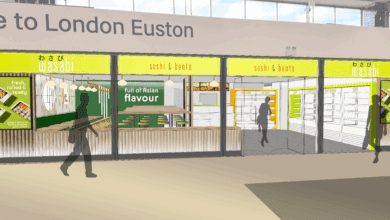How hospitality saved November and why it needs saving in April
The economy expanded by 0.1% overall during the month, with the hospitality industry emerging as a major contributor to this slight but noteworthy improvement

Register to get 1 free article
Reveal the article below by registering for our email newsletter.
Want unlimited access? View Plans
Already have an account? Sign in
The Office for National Statistics’ November 2024 GDP numbers highlight how important the hospitality industry is to the UK economy. It is evident that this industry continues to be a pillar of economic recovery, with the food and beverage subsector leading the economy in terms of performance, and hotels following closely behind. Following a 1.2% decrease in October, the accommodation and food service activities subsector saw a 2% increase in output in November, with food and beverage services expanding by 1.6% and hotels by a strong 3%.
The economy expanded by 0.1% overall during the month, with the hospitality industry emerging as a major contributor to this slight but noteworthy improvement.
This growth demonstrates the industry’s capacity to provide broad economic advantages. Through direct consumer spending, the maintenance of an intricate web of jobs, supply chains, and tourism-related industries, the industry makes a substantial contribution to the GDP. In turn, agriculture, transportation and the cultural sectors all gain from the prosperity of restaurants, pubs, bars and hotels.
Kate Nicholls, the CEO of UKHospitality, aptly referred to the industry as “the engine behind economic growth in November”, and urged the government to acknowledge and encourage its ability to propel the country’s economy.
However, the difficulties that lie ahead overwhelm this positive performance. The hospitality sector is expected to incur an additional £3.4bn in expenses in April, which includes higher business rates and employer National Insurance contributions. Following pandemic-related interruptions and inflationary pressures, many businesses have come out against these financial constraints which pose a threat to the sector’s ability to recover.
Operators of hospitality venues have already responded by halting hiring, putting investment plans on hold, and implementing cost-cutting measures. These changes could have disastrous effects on a sector that depends largely on labour and has narrow profit margins.
In addition, UKH has had to tighten the screws and demand that the chancellor work with businesses to develop a more sustainable course of action, before delaying the introduction of these tax increases. The trade body believes that a delay in implementation would provide the industry the breathing room it needs to make investments in expansion and steer clear of choices that would impede its advancement. Without such action, Nicholls has said, companies will be compelled to raise prices, cut back on hours, or, in the worst situations, close altogether.
The difficulties won’t end in April 2025. With 172 businesses declaring bankruptcy in 2024, the hospitality sector accounted for 10% of all business administrations in the UK, demonstrating the severe financial strains already plaguing the sector. Many firms are in a precarious position as a result of the challenges being exacerbated by rising expenses, global volatility, and declining customer confidence. Even while December’s late-year spike in consumer spending provided some respite, the upcoming structural difficulties are unlikely to be mitigated by this seasonal increase. That’s not to say that a ray of optimism was not provided by December’s trading figures, which revealed a 3.2% year-over-year increase in sales. However, the majority of this rise was centred in pubs, with restaurants and bars experiencing relatively moderate gains in comparison.
Businesses in the hospitality industry must balance the necessity to preserve profits with the possibility of offending customers by raising prices. Many businesses have inadequate resilience as a result of pandemic-related legacy problems, such as interrupted supply chains and inflationary cost pressures. Labour-intensive industries, like hospitality, are particularly susceptible to the growing expenses of doing business, according to experts. Without focused assistance, there is still a significant chance that the industry would experience more insolvencies, endangering the economic recovery it has aided in.
The government must make a crucial choice. Businesses may continue to propel economic growth by acknowledging the critical role of hospitality and postponing harsh tax reforms. On the other hand, inaction runs the risk of reversing the industry’s hard-won advancements and making financial difficulties worse.
The hospitality sector has shown that it can bounce back and take the lead in trying times, but it won’t reach its full potential without a supportive legislative framework. Whether the government is willing to invest in this crucial sector or let temporary tax measures undermine its economic contributions will become clear in the upcoming months.







